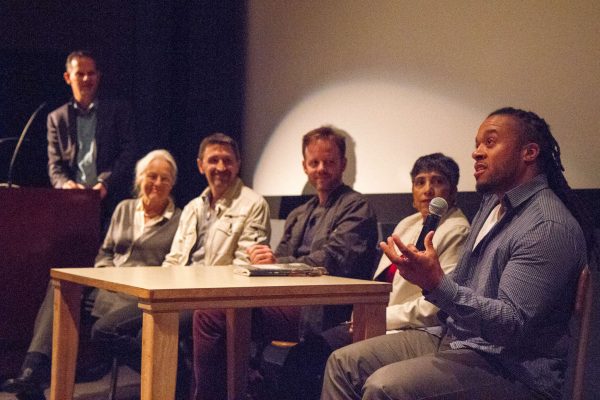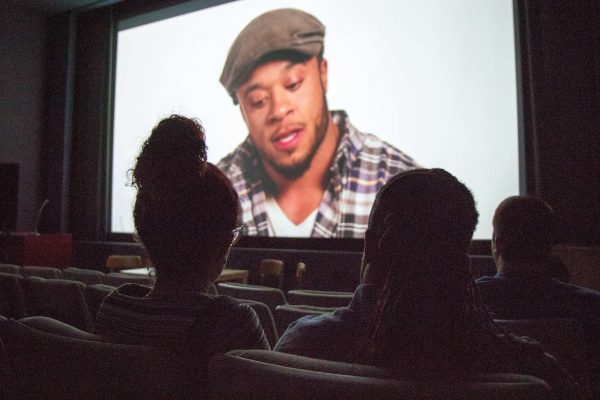SF State faculty and alumni received heartfelt gratitude from the audience after showcasing their short LGBTQ films during a screening in honor of National Coming Out Day.
“Queer Shorts” was a two-hour screening of short films hosted by the Cinema Department in commemoration of National Coming Out Day on Oct. 11. All five films were either made by current professors at SF State or alumni, and dealt with LGBTQ issues.

Johnny Symons, a cinema professor, spoke of the importance of National Coming Out Day prior to the screening.
“It’s one of our strongest tools towards attaining full human rights,” Symons said.
This screening was the sister event to a screening in April, called Valentine Road, which recognized Transgender Day of Visibility.
Each short film dealt with issues of identity shifting/seeking, acceptance and community building. The films ranged in style and aesthetic, with the shortest being “Wayne,” a mere 9 minutes, and the longest, “The Day I Grew Up,” which ran for 21 minutes.
Sam Berliner, the main character of his own film, “Dating Sucks: A Genderqueer Misadventure,” spoke from experiences with their discomfort in the dating world while they were wrestling with their identity.
“How could I be comfortable enough to date if I’m not comfortable in my own body?” asked Berliner as they cycled through friends, partners, and those in-between during the film. Members of the audience nodded in solidarity and laughed along with Berliner.
Patricia Ovando, who directed Ojos Que No Van, a story of the struggle of a Salvadoran mother and her queer daughter who are trying to bridge a cultural and general gap, said that her narrative is partially pulled from real life.
“I used to work as a youth counselor and I started hearing the stories of these queer youth,” Ovando said. “Some of the parents accepted them and some didn’t.”
Her story ended without a reconciliation between parent and child, but Ovando said she’s working on part two, where Josephine finds the acceptance she needs from her mother.
“I wanna show that because a lot of people think there is a taboo that Latino parents don’t support or accept their children. The numbers are higher than what people would think,” Ovando said. “Most of the parents that I’ve talked to, they do support their kids. That’s good. They’re more receptive.”

During the Q&A portion of the event, multiple members of the audience raised their hands just to compliment the panelists on their films and thank them for representing LGBTQ issues.
Kingston Farady, the main character of “Black is Blue,” another film shown, said his own quest for identity and acceptance mirrored his portrayal, and spoke to the power of coming out.
“Identity is really powerful. Just thinking about my own transition. I had my own internal transphobia,” Farady said. “I wanted to hide. It took me a while to get to the point where I could be so much happier just being me. Choosing to become visible—which is a very personal choice—choosing that changed my world.”






